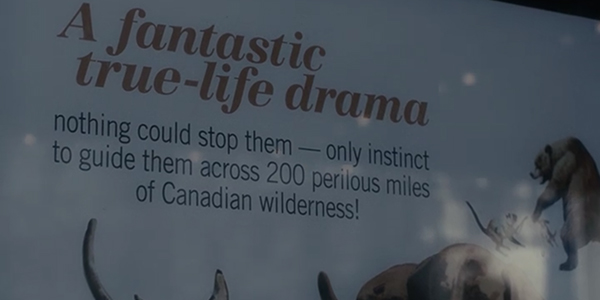Reprising Inside Llewyn Davis
- 24 Dec 2020
- The journey resonates as much now as it had six years ago, but these days, I tend to focus more on its production and performances.
I re-watched Inside Llewyn Davis after having not watched it or listed to its soundtrack for a few years. I still, and will always, identify with Llewyn because of his uncompromising practice of his art; for better or worse, I get easily irritated and avoid societal expectations, too. These days, however, I view the movie more as a movie and not so much as a tale for inspiration or caution. This time, I came to appreciate a few things that I’d overlooked.
Firstly, I like the look and feel of the Gorfeins’ apartment where Llewyn takes refuge at different points in the movie. It’s warm and cozy because of the interior design and the Gorfeins’ personalities. The apartment is like the Home Alone mansion: it gives the clear impression that its residents are well-to-do, but their décor is motivated more by comfort than vanity. I would live there, if I could afford it.
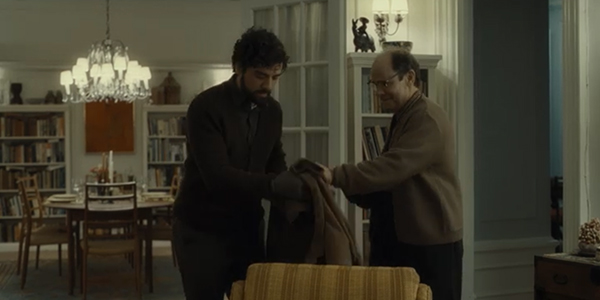
Secondly, the road trip to Chicago is more prominent than I’d remembered. The movie is mostly set around Greenwich Village, but the part that’s set outside of New York is important as well. The turning point of the story is Llewyn’s audition at the Gate of Horn, which has such an imposing façade. The owner, Bud Grossman, is imposing, too, because of his position and because of F Murray Abraham’s similarly powerful role in Homeland.
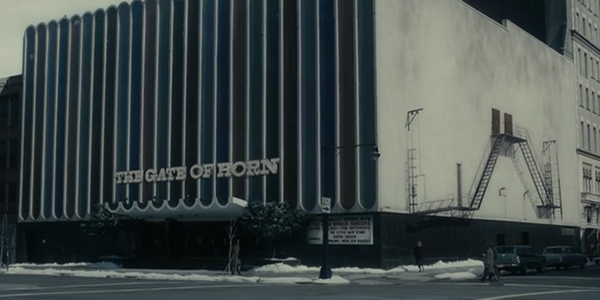
Thirdly, I like the road trip itself. The scene at the gas station in particular, even though it happens in the winter and en route to the Midwest, reminds me of On The Road, which I’ve read earlier this year. I haven’t seen the movie adaptation that stars Garrett Hedlund, but he plays a beatnik writer in this movie, too. The truck stop, where his character finally strings a few sentences together and a waitress briefly eye-bangs Llewyn, looks surprisingly modern.
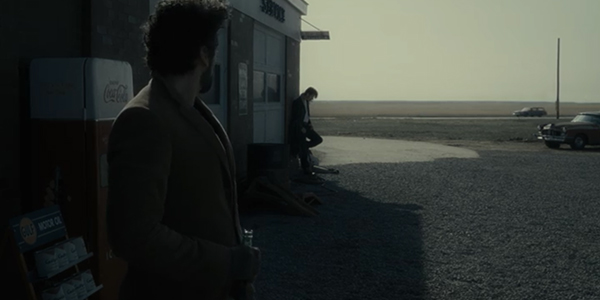
Fourthly, I enjoy the scene at Columbia Records. Specifically, I like the interaction between Llewyn and the studio man who’s credited as such. He’s professional and helpful when he suggests that Llewyn could sign as an independent contractor to get paid immediately, and on two occasions, he notes that Llewyn would forfeit any royalties in the process. This information is for the audience’s benefit, but it’s fair for Studio Man to remind Llewyn.
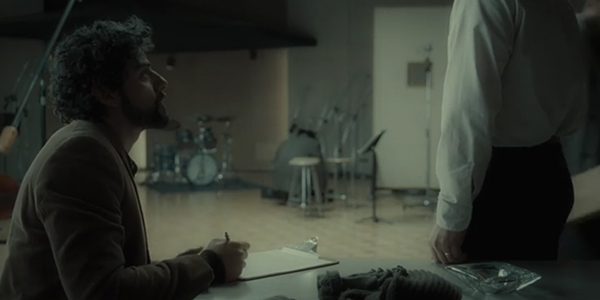
Overall, the movie isn’t as totally depressing as it initially seems. Llewyn is a struggling musician who needs to couch-surf, but at least he has family, friends, and peers with whom he can couch-surf (when they’re not mad at him). His life’s work might be unappreciated, but he could always be a Merchant Marine again if he re-acquires the necessary credentials. He also seems to be in good health, although his smoking might catch up with him.
The main thing that I take from this movie is to embrace the setbacks of following your passion. They make a person’s life more interesting and, ultimately, they make that person more interesting. (Like Llewyn, I feel like I’ve already had this experience). However, being pragmatic, like recording a novelty song as a recording musician because you need the cash, doesn’t necessarily force to you to abandon your passion.
